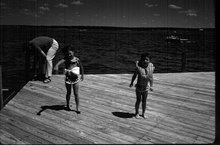
In one of his letters, Bedichek mentions a book by Alfred Russell Wallace entitled The Wonderful Century. In the chapter on photography called “New Applications of Light” he writes,” The improvements of the mode of production of light for common use …are sufficiently new and remarkable to distinguish this century from all the ages that preceded it, but they sink into insignificance when compared with the discoveries that have been made regarding the nature of light itself.” So much is changing at the turn of the century, and time itself is being compacted like the soil beneath any of dozens of heavy pieces of machinery moving the earth about to follow the contours of man’s desires.* Already, in 1951, Bedichek bemoans the passing of an era, the loss of the honey bee and man’s sense of wonder with the natural world. I am just a descendent in the lineage of the grieving.
Tricky thing, time--if you begin to move backward in it, like swimming against the current of some roiling river, it gapes and opens into an ocean, and what once was just a barely audible, far-off call of a vaguely recognizable bird is suddenly a roar so loud you cannot bear to hear it without clapping your hands over your ears. Do you, then, get back into your tent as God advised the Israelites?
Perhaps as we learn more, imagine more intensely, about the nature of light we will realize that nothing is lost, that it is all here in our midst, perceptible to some finely tuned instrument. Then I will quit grieving the maps and archaeological record discarded by an unappreciative librarian, or the Leica enlarger cast off as a bit of junk crowding the basement. Perhaps not. For now, I let my sighs join in a puddle with those of a fellow investigator of the past (although I know his sighs are spent with equal measure on the present, on the subtlest sound, the faintest shuddering breath).
Have we passed through the wonderful century? Are there any more poets being born?
*As Norma Evenson wrote in her 1979, Paris: A Century of Change, "And so, one hundred years is not so long. A century no longer implies a period of slow accretion." (xvi)



